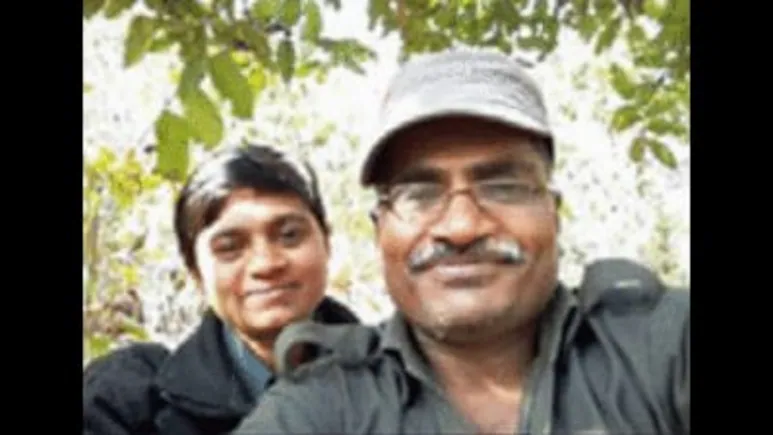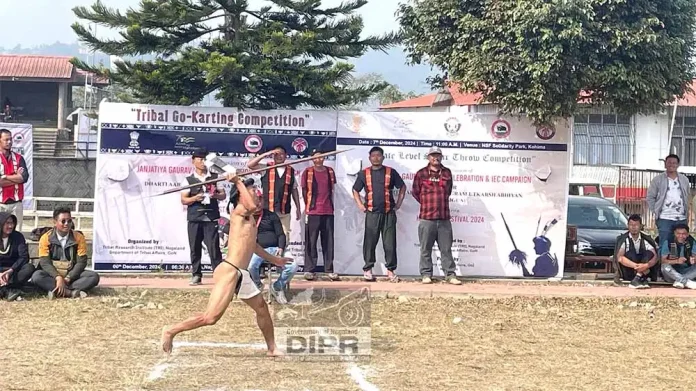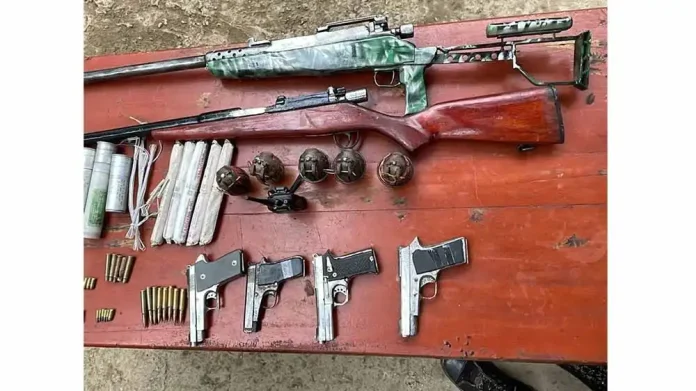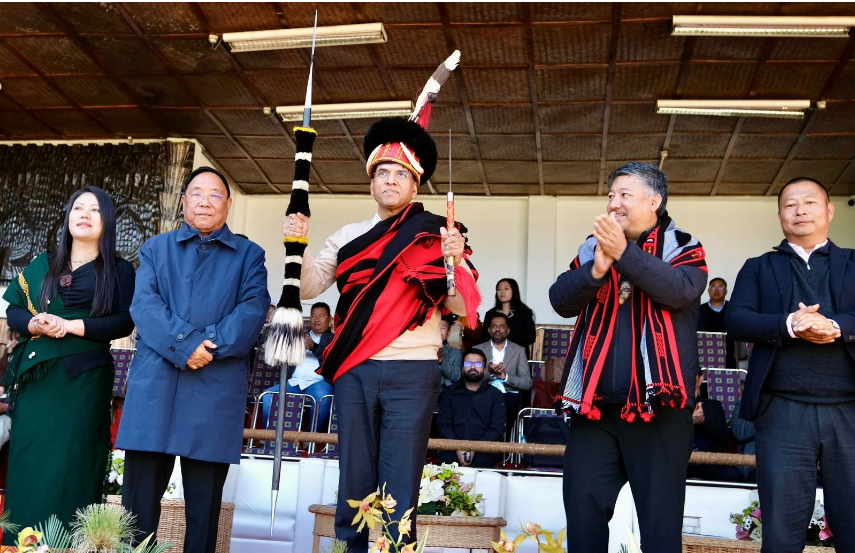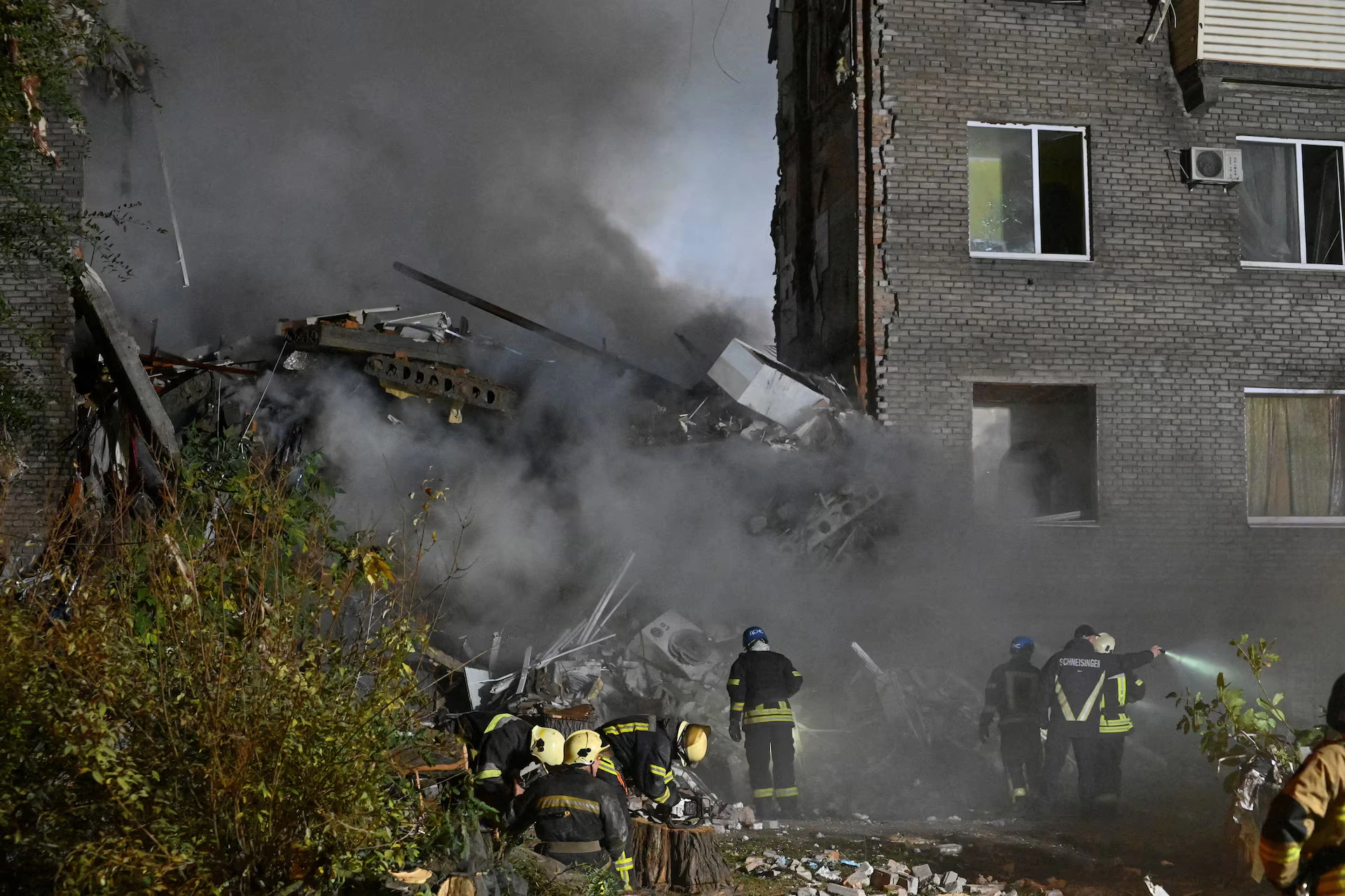
ZAPORIZHZHIA, Ukraine, Dec 24 (Reuters) – Spying runs in the family for Oleh Kolesnikov.
The Ukrainian citizen said his father was a Soviet intelligence agent in Cuba during the Cold War, posing as a translator, and his cousin works with the Russian security service.
That made him a prime candidate for wartime espionage.
Kolesnikov told Reuters he agreed to supply the Russians with information about military sites and troop movements in his home city of Zaporizhzhia, and report back on where their missiles had landed.
He had supported the concept of the “Russian World“, a doctrine backed by President Vladimir Putin that emphasizes Moscow’s historical and cultural ties to neighbouring nations, and one which some hardliners in Moscow have used to justify intervention abroad in defence of Russian speakers.
“I didn’t do this for money,” he said.
But he had regrets: That the inaccuracy of some missile strikes led to civilians being killed, and that the war – which he had assumed would be a swift, clinical affair – has dragged on for almost three years, devastating his homeland.
“I thought they (the Russians) would advance rapidly,” said the 52-year-old, a former state land manager who grew up in a Soviet Ukraine. “It turned out like it always does. They plan one thing and another thing happens entirely.”
His wife left him when he was arrested for treason, taking their 11-year-old child with her.
Reuters spoke to Kolesnikov in a police facility in Zaporizhzhia in April, in the presence of an officer from the Security Service of Ukraine (SBU), five months before he was sentenced to life in prison for treason.
His is among more than 3,200 state treason cases launched by Ukrainian authorities since Russia’s full-scale invasion, including feeding information to Moscow to assist missile strikes and spreading Russian propaganda, according to the SBU.
Reuters interviews with three informants convicted by Ukraine and two SBU Ukrainian counter-intelligence officers spoke to the divided loyalties felt by some people in Ukraine, where older generations grew up as part of the Soviet Union before the bloc’s breakup in 1991 ended the Cold War.
Vasyl Maliuk, the head of the SBU, told Reuters that Ukrainian counter-espionage work to root out Russian agents was key to victory in the war, adding that the Kremlin had been “secretly infiltrating” the country and recruiting assets for decades.
“Our systematic approach is yielding results,” he added. “We have purged enemy agents in all spheres of life and continue to do so.”
Russia’s foreign ministry and Federal Security Service (FSB) didn’t respond to requests for comment for this article.
Ukrainian spies have also played a prominent role in the conflict, which erupted in February 2022 when Russia launched a full-scale invasion.
Last week, the SBU orchestrated a bomb blast outside a Moscow apartment block that killed Lieutenant General Igor Kirillov, chief of Russia’s Nuclear, Biological and Chemical Protection Troops, according to a source at the agency.
This was the latest in a string of targeted assassinations that Moscow says Ukraine has carried out during the war.
In November 2022, Reuters interviewed several residents of Kherson who supplied information to help Kyiv conduct strikes on Russian targets to help Ukraine recapture the southern city.
HOW TO CATCH A SPY
SBU counter-espionage work has identified different categories of citizens prone to being recruited by the enemy, according to an SBU officer interviewed by Reuters in Zaporizhzhia who identified himself by the call sign “Fanat”.
They are people who were openly pro-Russian or have family links to Soviet or Russian intelligence; relatives of captured Ukrainian soldiers; and the family of people living in occupied territory.
Kolesnikov was category one, he added.
He was convicted in September of supplying the Russians with the coordinates and other information about dozens of mainly military sites, according to his treason verdict, which was seen by Reuters. It didn’t say how many of those locations were hit by strikes.
Kolesnikov’s lawyer said he mainly helped verify the aftermath of strikes rather than helping identify targets.
Kolesnikov told Reuters that in September 2022 he passed information to the Russians about a meeting of local officials that was meant to happen at the Sunrise Hotel in Zaporizhzhia.
The building was struck by a Russian missile the following day, on Sept. 22, 2022, according to the verdict. The meeting didn’t take place, for undetermined reasons, though the strike devastated the building in Zaporizhzhia’s old town, killing a civilian and hurting five others, the verdict said.
The hotel conference hall and cratered summer terrace remained strewn with rubble during a Reuters visit to the site in April this year.
Fanat said SBU agents began closing in on Kolesnikov after the suspect’s car was spotted by witnesses at the site of a Russian strike in March last year that narrowly missed a television tower and hit an apartment block, killing several civilians. Kolesnikov told Reuters he was there afterwards checking on the results of the attack.
Ukrainian agents traced Kolesnikov’s phone to numerous impact sites, according to Fanat. The breakthrough in the case came after they planted a bug in his car and overhead him discussing his plans with Vitaly Kusakin, a friend who worked as a chauffeur for a local official, and whom Kolesnikov had recruited to help gather intelligence, the SBU officer said.
Kolesnikov was arrested at his home on May 5, 2023.
Testifying at his trial at a district court behind closed doors in Zaporizhzhia, Kolesnikov said he was opposed to the Ukrainian government, but not Ukraine itself, the verdict said.
He pleaded “partially” guilty to the treason charges against him, saying he had not known that his cousin who asked him to supply information was a member of the FSB at the time, according to the verdict. A panel of judges rejected that plea and found him guilty of “intentional actions” involving “providing assistance to a representative of a foreign state in conducting subversive activities”.
Kusakin has been jailed for 15 years.
SPY RINGS AND PRISONER SWAPS
Maliuk, the head of the SBU, said his agency had uncovered 47 Russian agent networks last year and 46 more this year, comprising people ranging from lawmakers to active servicemen, he added, without identifying the suspects.
As the war has raged on, reducing the ease of travel from one side of the front to the other, recruitment methods have had to change, security officials said.
Before the full-scale invasion, Ukrainian nationals were mainly recruited during trips to Russia, but approaches are more often made online now using social networks, the SBU said.
“People who express pro-Kremlin views are identified and found based on their comments, and then contacted,” it said.
The motives for acting as an informant range from ideological to promises of financial or other rewards and blackmail or other threats, the SBU said.
For Kolesnikov, who says he provided his services freely, the future looks bleak. He told Reuters his only hope of salvaging his life was to be released in a future prisoner swap with Russia.
“I would like to be exchanged,” he sighed. “But that doesn’t depend on me.”

